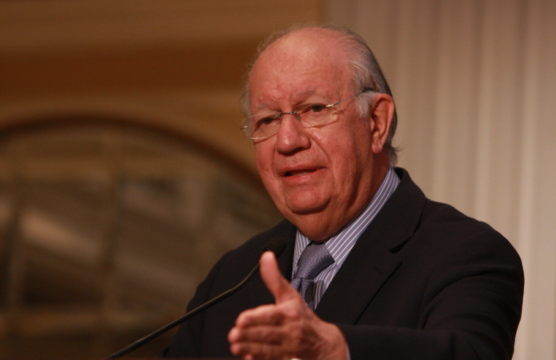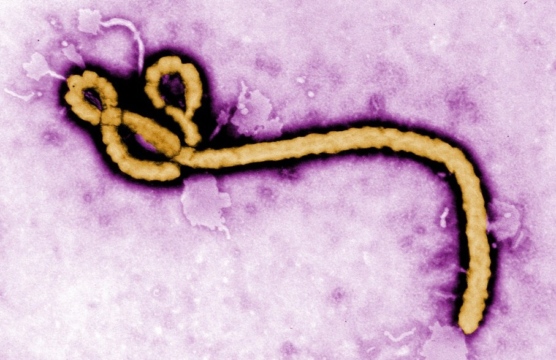Industrial Policy & Innovation in Brazil
Despite an increased presence in the global market, Brazil’s new economic policy shows sign of protectionism and defense of traditional industries.
On November 4, 2020, the Inter-American Dialogue convened the virtual panel discussion on “Innovating Healthcare in Latin America and the Caribbean.” While the region understandably remains focused on Covid-19 response, a recent World Bank survey indicates that treatments for noncommunicable diseases (NCDs), such as diabetes, cancer and cardiovascular disease, are suffering disruptions on a global scale. With these findings forming the basis of discussion, the conversation highlighted the need for innovation in health systems amidst both the global pandemic and the resultant breakdown of NCD diagnosis and treatment. The event featured speakers Rifat Atun of Harvard University, Amanda Glassman of the Center for Global Development, Rolf Hoenger of Roche Pharmaceutical and María del Rocío Sáenz Madrigal, a former health minister of Costa Rica. Michael Shifter moderated the conversation.
Shifter opened the discussion by outlining the challenges to providing NCD care under pandemic conditions. Because NCD patients tend to have an increased vulnerability to Covid-19, some officials have sought to keep at-risk populations away from contagion sites like hospitals. The unintended consequences of this, however, have caused health conditions to go undiagnosed and untreated, creating a backlog of demand for health services and necessitating new methods and systems to care for people with NCDs in the context of Covid-19.
"Combining technology with innovation in delivery is necessary to develop new models of care."
Atun outlined three effects of the coronavirus outbreak, the first being the resultant mortality, which has been relatively high in Latin America and the Caribbean. The second consequence is that of delayed NCD care combined with health systems’ low capacities, resulting in a large care backlog and expected “tsunami of demand” awaiting services. Third, Atun noted, are the pandemic’s amplified social consequences stemming from inequality, both in income and in access to health services, all exacerbated by a lack of strong safety nets. These pandemic challenges, in combination with the inability of health systems to cope with rising levels of chronic disease, Atun urged, require a major shift in how public health is delivered. The region needs to create an “ecosystem for innovation,” he urged, with the involvement of the private sector, investors, international financial institutions, civil society and government resources working together.
[caption id="attachment_102641" align="alignleft" width="300"]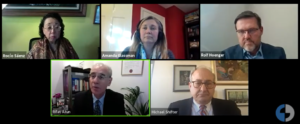 Rocío Sáenz, Amanda Glassman, Rolf Hoenger, Rifat Atun, and Michael Shifter[/caption]
Rocío Sáenz, Amanda Glassman, Rolf Hoenger, Rifat Atun, and Michael Shifter[/caption]
Sáenz emphasized the need to focus on women as a target population within the healthcare system, noting the heavy representation of women in poverty and the informal sector. She also referenced the fragmentation of the healthcare system as a major regional challenge, now split between attention to the coronavirus and to chronic disease. This split has widened as patients prefer to forego treatment or diagnosis rather than go to a hospital at the risk of Covid-19. She noted that to gain ground in the face of these challenges the region needs “more money but also must spend this money better…and look for more effectiveness, not only efficiency.”
Glassman noted that the demand for healthcare in the region exceeded the system’s capacity even prior to the pandemic. She highlighted the lack of funding, with little growth in public spending on the health sector over time and shortcomings in its efficient allocation, saying “public health was the forgotten function” of government. She noted that a pervasive challenge remains the underinvestment in screenings and early interventions, with public health responsibilities often handed down to lower levels of government. Even with the pandemic, Glassman explained, the response has concentrated on economic recovery rather than strengthening health systems and even then, attention remains centered on hospitals.
"The problem is we have more severe diseases because we detect patients late, [creating] a big burden on the system that is probably not talked about enough."
Hoenger recognized that an overarching trend in the region has been a lack of preparedness, as well as a short-term vision when it comes to health systems, one that contributes to currently available innovation going under-utilized. Hoenger pointed to the need for good quality data and follow-up data, saying “the more we have data driven analysis, the more we will be able to offer our patients and populations better care.” He additionally addressed the increasing health costs arising from missed or late NCD diagnosis, saying “the problem is we have more severe diseases because we detect patients late, [creating] a big burden on the system that is probably not talked about enough.” As for solutions, he emphasized public-private collaboration as key to bringing innovators into the health system, partnerships that could eventually aid in the much-needed improvements to primary care. A range of tools could be expanded, such as hotlines to help screen patients, improved transportation practices to get patients safely to hospitals, better patient monitoring, or home treatments to keep patients out of hospitals, he noted.
[caption id="attachment_102645" align="alignright" width="300"]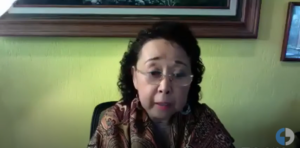 Rocío Sáenz[/caption]
Rocío Sáenz[/caption]
The event concluded with a Q&A discussion. In response to a question on Latin America’s health capacity challenges, Sáenz stated that the pandemic has provided an opportunity to rethink health services and “reanalyze the role of the primary health care,” which remains underdeveloped regionally in favor of a focus on hospitals. Impeding a view of the health system as a whole, Glassman added, is the fact that private care is perceived as of superior quality over public clinics. To a subsequent question on overburdened Caribbean healthcare systems amidst sluggish economic growth, Atun replied, saying that health and economy are inextricably linked— if the economy is to grow, one must invest in health in order to cultivate human capital. Sáenz added that forms of innovation investment that could benefit the Caribbean include the incorporation of digital records organized in stratification by NCD risk, increased health education and the expansion of health messaging and telemedicine.
Furthering the discussion on technological innovation, when asked about the role of telemedicine and hospital information exchange networks, Atun shared that coronavirus response has indeed accelerated the adoption process for innovation; however, keeping up with regulatory changes will be key as they tend to be outpaced by new technologies. Hoenger noted, moreover, that emergency regulations during the pandemic that have proven effective should be adopted and become permanent. As final word, Sáenz ended urging the importance of global collaboration in the transference of vaccines, training and the rollout of other medical technologies to the region.
Despite an increased presence in the global market, Brazil’s new economic policy shows sign of protectionism and defense of traditional industries.
Latin America inequality gap, economic integration, and infrastructure and education systems were among the issues spotlighted at the XVII Annual CAF Conference.
How well are countries in the Americas prepared to fight the spread of a disease like Ebola?
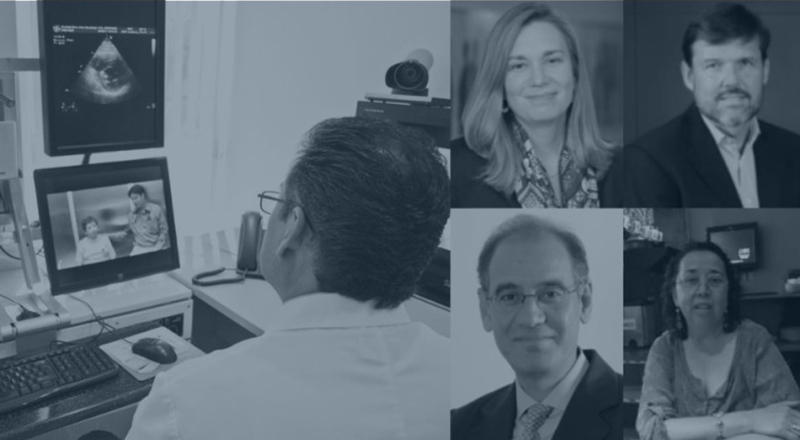 Main Photo: Intel Freee Press / Flickr / CC BY-SA 2.0
Main Photo: Intel Freee Press / Flickr / CC BY-SA 2.0
